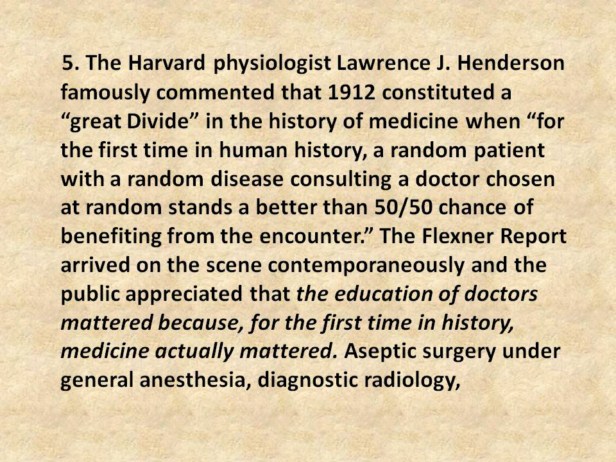| front |1 |2 |3 |4 |5 |6 |7 |8 |9 |10 |11 |12 |13 |14 |15 |16 |17 |18 |19 |20 |21 |22 |23 |24 |25 |26 |27 |28 |29 |30 |31 |32 |33 |34 |35|36 |37 |38 |39 |40 |41 |42 |43 |44 |45 |46 |47 |48 |49 |50 |51 |52 |53 |54 |55 |56 |57 |58 |59 |60 |61 |62 |review |
 |
bacteriology, clinical chemistry, and a rapidly developing pharmacopeia meant that educated physicians could actually affect the lives of the average citizen and, therefore, citizens finally had a stake in the education of doctors. In the same way that educated classes of society only began to donate their bodies for medical school anatomical dissection when social elites decided that medical education mattered, the politically powerful only began to care about medical education when the quality of that education had the potential to affect them and their children. The Flexner Report arrived at the right place and at the right time.
|